Suit Launched to Stop Navy Ships From Killing Whales
On May 8 two dead fin whales were pushed into port in San Diego, California, on the hull of a destroyer. It was the latest in a heartbreaking string of whale fatalities caused by vessel strikes off the West Coast. The more than two dozen whale deaths reported there from collisions between 2014 and 2018 may understate actual deaths by 20-fold.
So on Monday the Center for Biological Diversity sent a notice to the National Marine Fisheries Service and U.S. Navy demanding the agencies consult on ways to avoid killing endangered whales — or we’ll be forced to sue.
“These dead whales are grisly proof of the Navy’s dire ongoing threat to vulnerable marine mammals. We’re asking the Biden administration to find a better balance of marine protection with military readiness,” said Kristen Monsell, the Center’s oceans legal director.
Please help us save whales and other species with a gift to our Saving Life on Earth Fund. Do it now and your gift will be matched.
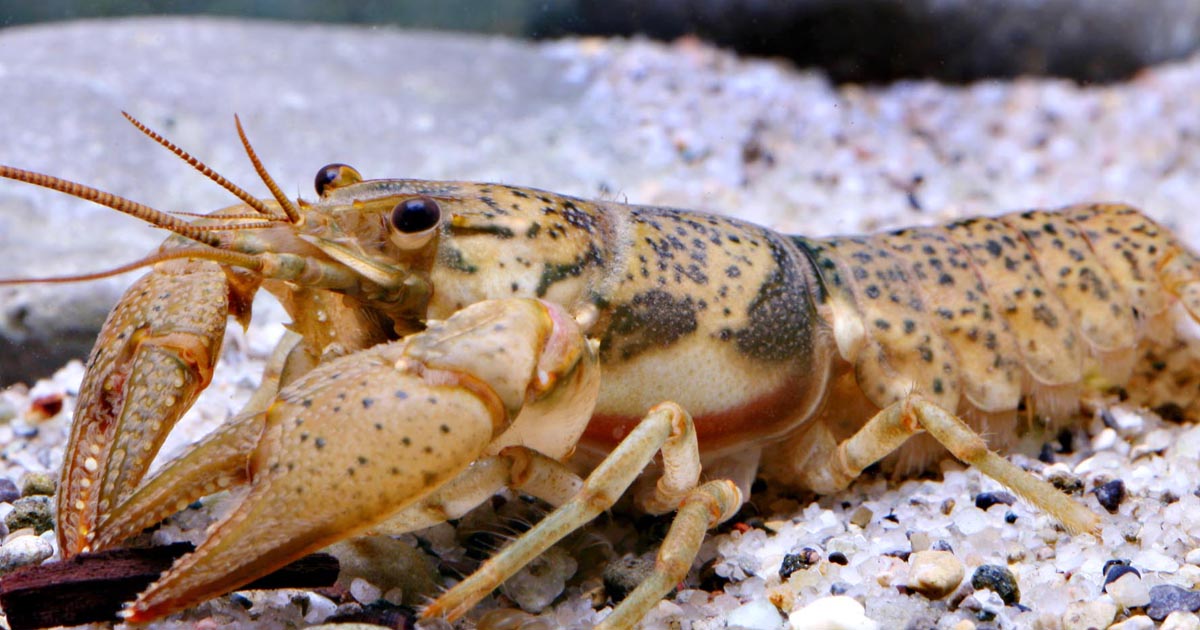
Take Action: Help Save These Missouri Crayfishes
Missouri’s Big Creek and St. Francis River crayfishes are in trouble. A non-native crayfish is squeezing them out of their streams, which are being poisoned with dangerous heavy metals from mining. The decline of these once-common little omnivores is heartbreaking — and a harbinger of mass biodiversity loss nationwide. But you can still help save them.
The U.S. Fish and Wildlife Service has proposed safeguarding the rare crawdaddies under the Endangered Species Act and protecting habitat for their survival and recovery. The agency is accepting public comments on the proposal now — and that’s where you come in.
Tell the Service to protect Big Creek and St. Francis River crayfishes before it’s too late.
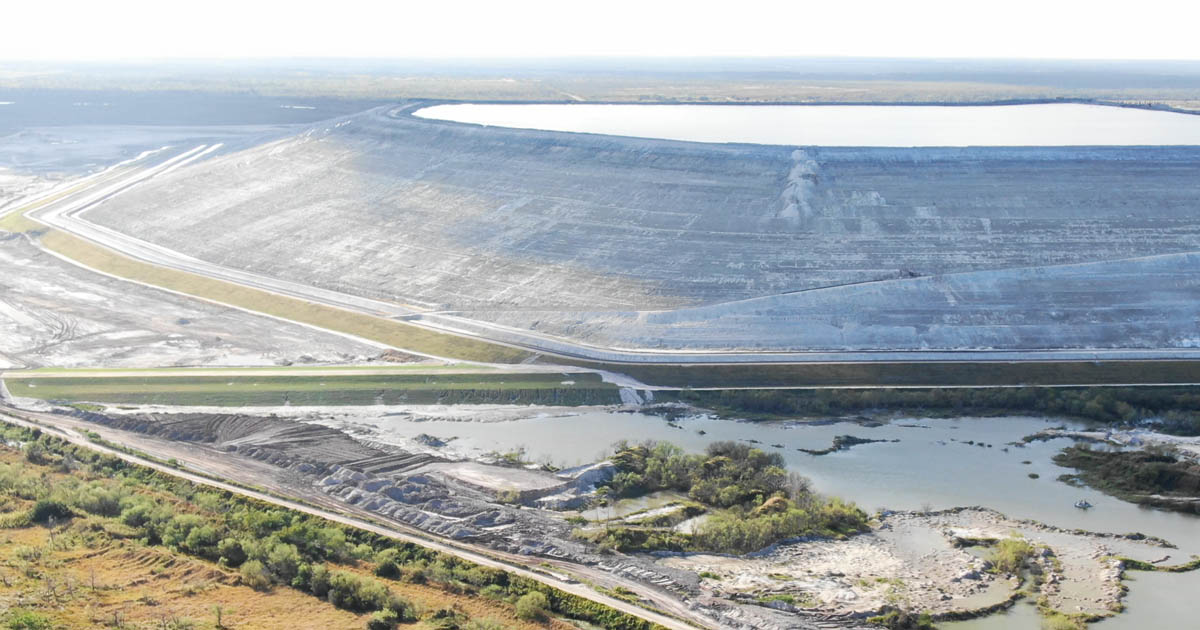
Anti-Pollution Lawsuits Launched This Week
This week the Center launched three lawsuits to protect people, wildlife and the environment from toxic pollution.
We took action to defend Florida residents and marine ecosystems from radioactive “gypstacks.” These are mountains of a toxic-waste product called phosphogypsum, the radioactive waste that comes from processing phosphate ore into phosphoric acid (most often used in fertilizer).
We launched a lawsuit to protect Maryland and Michigan residents and the environment from sulfur dioxide air pollution, which contributes to health problems like asthma and ecological harm like acid rain.
And this morning we filed a notice of our intent to sue the federal government for failing to regulate polyvinyl chloride — more commonly known as PVC or vinyl — as hazardous waste. PVC is one of the mostly commonly used and discarded forms of plastic, but many studies have found it’s highly toxic to human health and the environment.
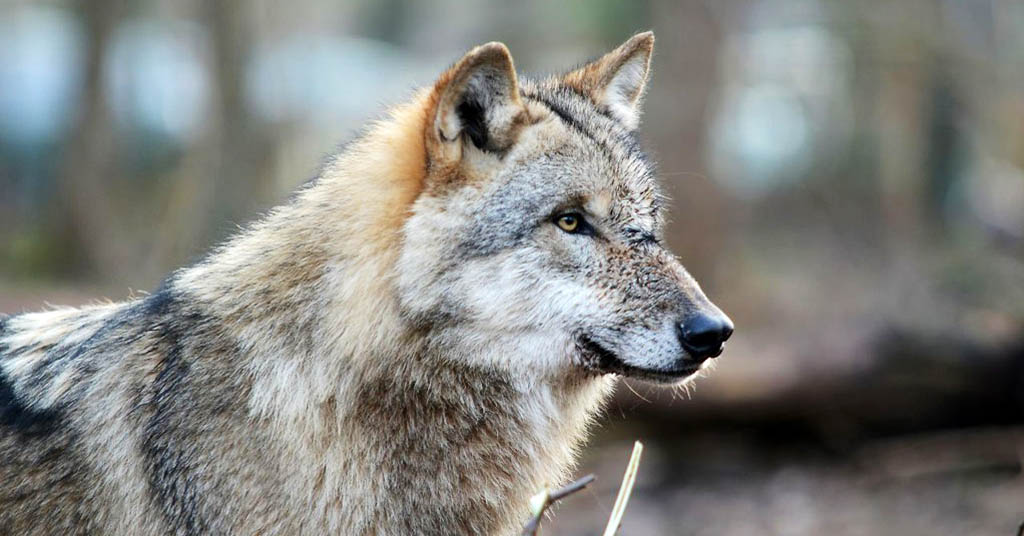
Massacres Show Why States Can’t Manage Wolves
Ten years after gray wolves in the northern Rocky Mountains lost their federal protection, new laws in Idaho and Montana may allow more than 2,000 of them to be killed. As the Center’s Andrea Zaccardi writes in a powerful new op-ed, these laws prove states can’t be trusted to manage wolves.
“The reckless spate of new laws in the northern Rockies may serve as dangerous templates for other wolf-hating legislatures like those in Wisconsin and Michigan to copy,” writes Andrea.
That’s why the Center and allies just called on the Biden administration to restore wolves’ Endangered Species Act safeguards before it’s too late.
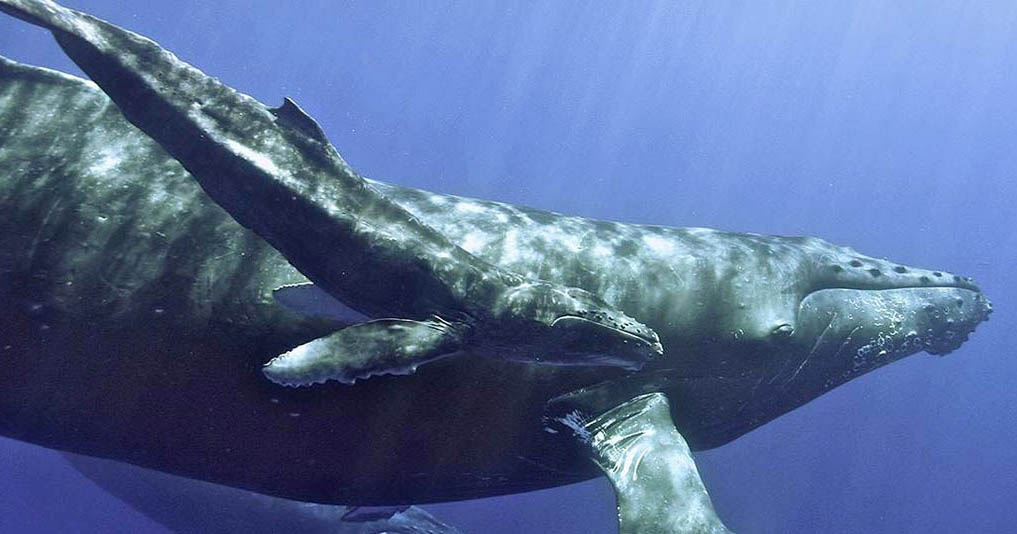
Win for Whales: California to Close Crab Fishery Early
Following a Center lawsuit, California announced Tuesday that its commercial Dungeness crab fishery will close early this year to avoid entangling endangered humpback whales now migrating along the coastline. The closure on June 1, about a month early, is based on data from an analysis required by a legal agreement reached by the Center. We urged California to close the fishery earlier except to ropeless gear, which doesn’t entangle whales and sea turtles.
“It’s good to see California finally acting to avoid whale entanglements,” said the Center’s Kristen Monsell. “But we’re disappointed state officials were so slow to take meaningful action and haven’t acted on the promise of ropeless gear to let crabbers keep crabbing.”
American bumblebees were the first species the Center and allies petitioned to protect under the Biden administration. As this video demonstrates, they also have the cutest butts of all invertebrates (scientifically speaking).
What better occasion than World Bee Day — yep, that’s today — to advocate for American bumblebees? Take action now to help curb their catastrophic decline.
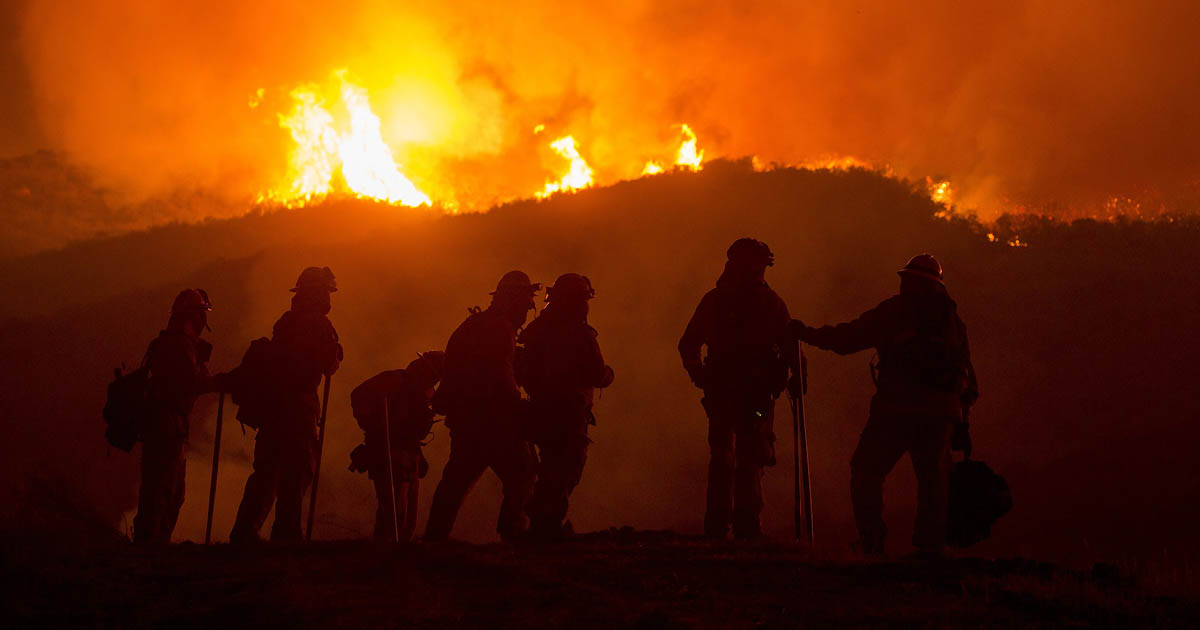
Bracing for Another Wildfire Season
The West Coast’s wildfire season started early last week with the human-caused Palisades brush fire. Last year’s blazes broke records; this year’s season, fueled by drought and climate change, could be another record breaker.
Federal land-management agencies and some lawmakers are calling for increased logging and roadbuilding to reduce wildfire risk. But for decades this approach has failed to keep people safe, instead hurting wildlife and increasing the danger of destructive fires.
“We can’t log our way out of the climate emergency,” the Center’s Randi Spivak told Roll Call. “Federal officials shouldn’t use the public’s understandable fear of wildfires to make a case for logging in the backcountry.”
The best ways to protect people and property from wildfires are to retrofit homes, create “defensible space” around structures, and avoid building new homes in high fire-prone areas.
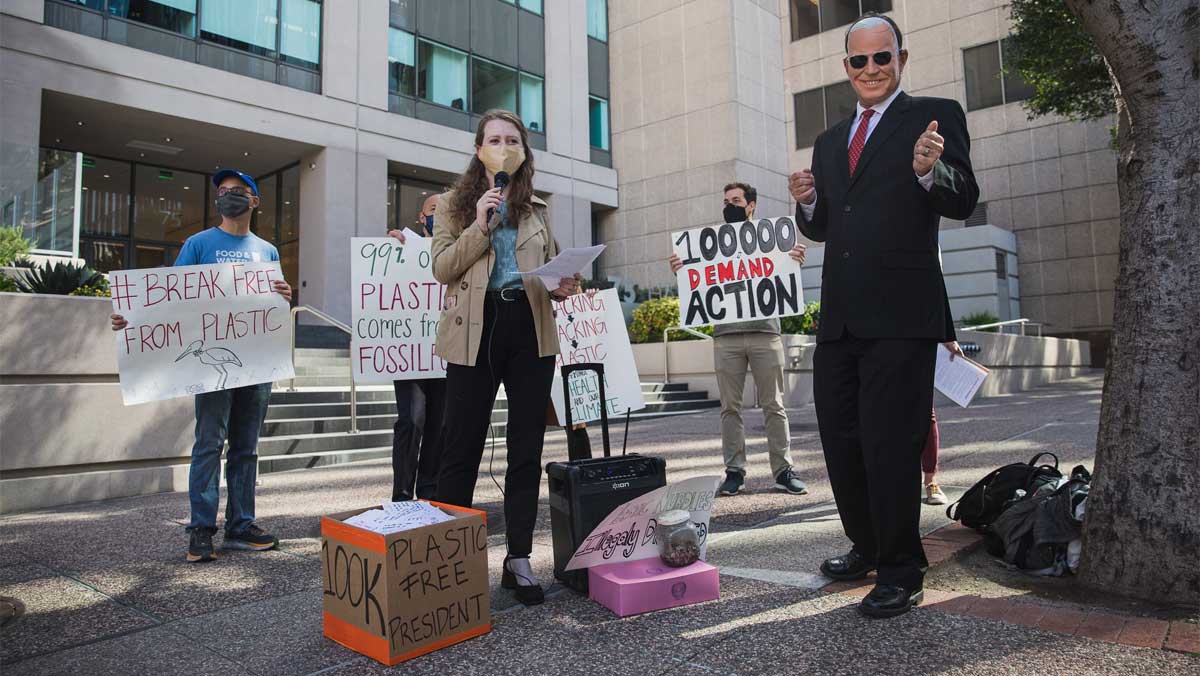
Center Op-Ed: Being Joe Biden
Donning a mask with Joe Biden’s face on it doesn’t make you the president, as the Center’s Steve Jones now knows. But it can give you the opportunity to stand in for him and learn about the plastic pollution crisis — and what a #PlasticFreePresident can do, right now, to bring it to heel.
Read Steve’s column on Medium and let your members of Congress know how urgent it is that they support the Break Free From Plastic Pollution Act.
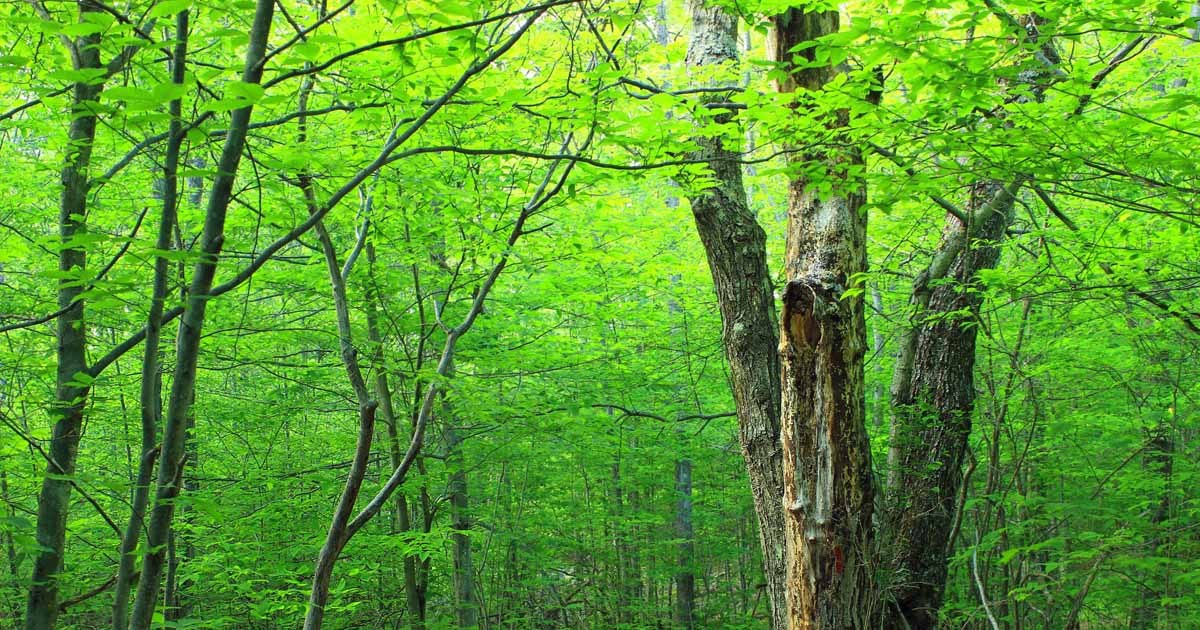
That’s Wild: Are Trees Social?
According to Canadian ecologist and author Suzanne Simard, trees communicate and cooperate with each other in profound ways.
For example, her research shows, some forests have “mother trees” that help younger seedlings grow by sharing carbon, nutrients and water through an underground network of fungi that resembles neurons in the brain. This network also connects trees in other ways, letting them "warn" each other of dangers like the presence of damaging insects.
In the middle of her lifelong study of trees, Simard was diagnosed with breast cancer and found out one of her chemotherapy treatments was made from a substance some trees share for mutual defense.
Read or listen on NPR to learn more about Simard's journey, the social dynamics of trees, and how we can learn from them.
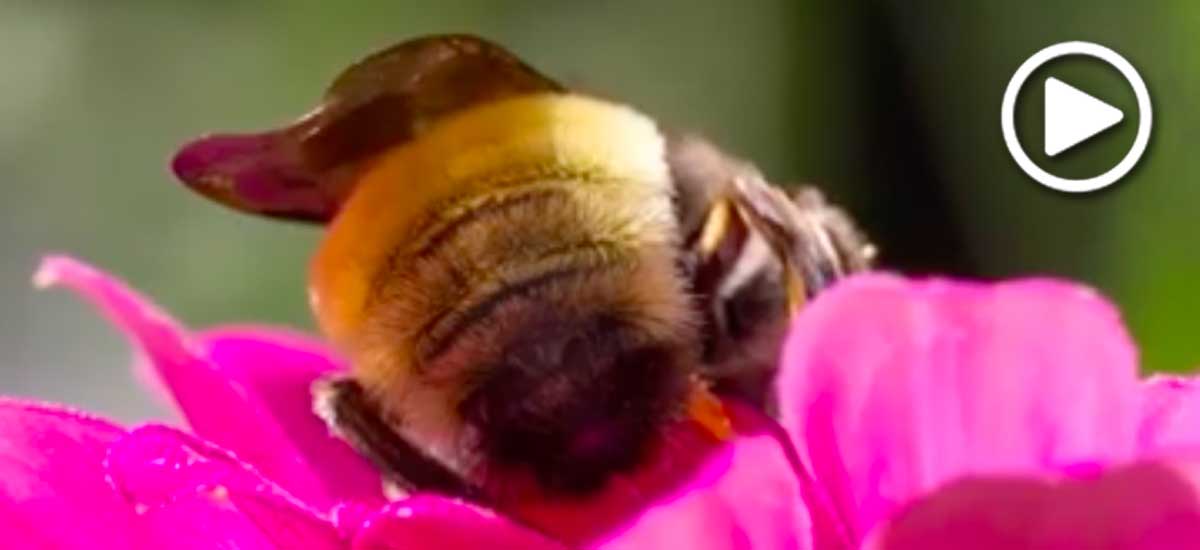

No comments:
Post a Comment
Note: Only a member of this blog may post a comment.